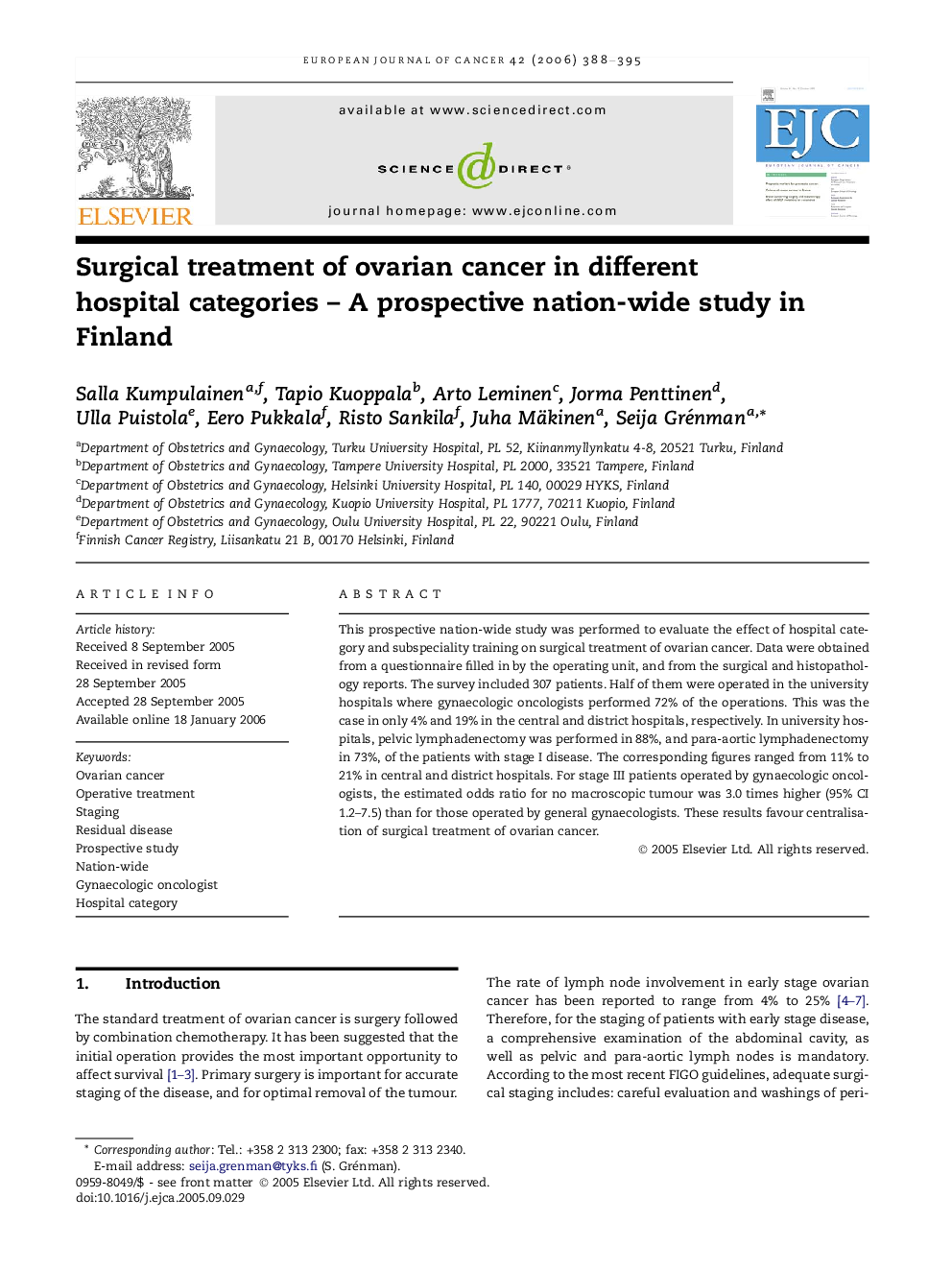| Article ID | Journal | Published Year | Pages | File Type |
|---|---|---|---|---|
| 2126135 | European Journal of Cancer | 2006 | 8 Pages |
This prospective nation-wide study was performed to evaluate the effect of hospital category and subspeciality training on surgical treatment of ovarian cancer. Data were obtained from a questionnaire filled in by the operating unit, and from the surgical and histopathology reports. The survey included 307 patients. Half of them were operated in the university hospitals where gynaecologic oncologists performed 72% of the operations. This was the case in only 4% and 19% in the central and district hospitals, respectively. In university hospitals, pelvic lymphadenectomy was performed in 88%, and para-aortic lymphadenectomy in 73%, of the patients with stage I disease. The corresponding figures ranged from 11% to 21% in central and district hospitals. For stage III patients operated by gynaecologic oncologists, the estimated odds ratio for no macroscopic tumour was 3.0 times higher (95% CI 1.2–7.5) than for those operated by general gynaecologists. These results favour centralisation of surgical treatment of ovarian cancer.
